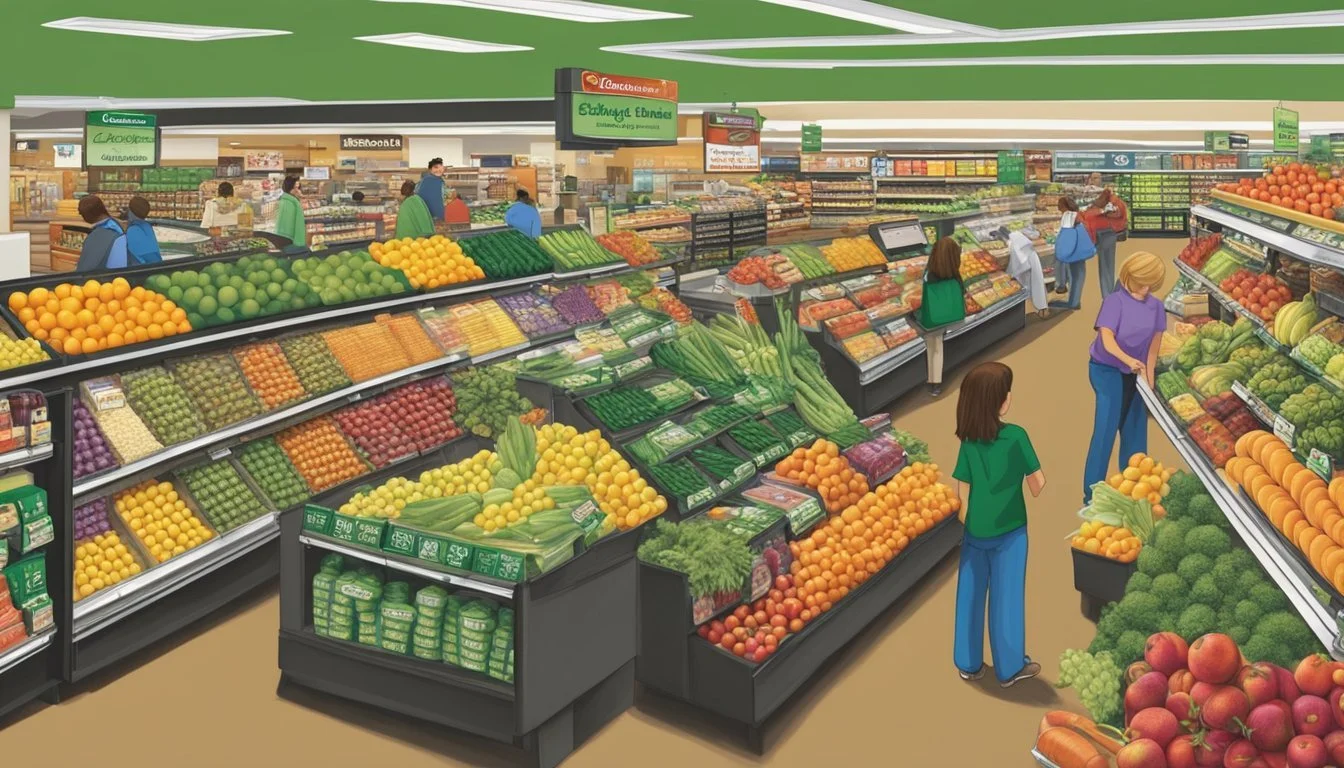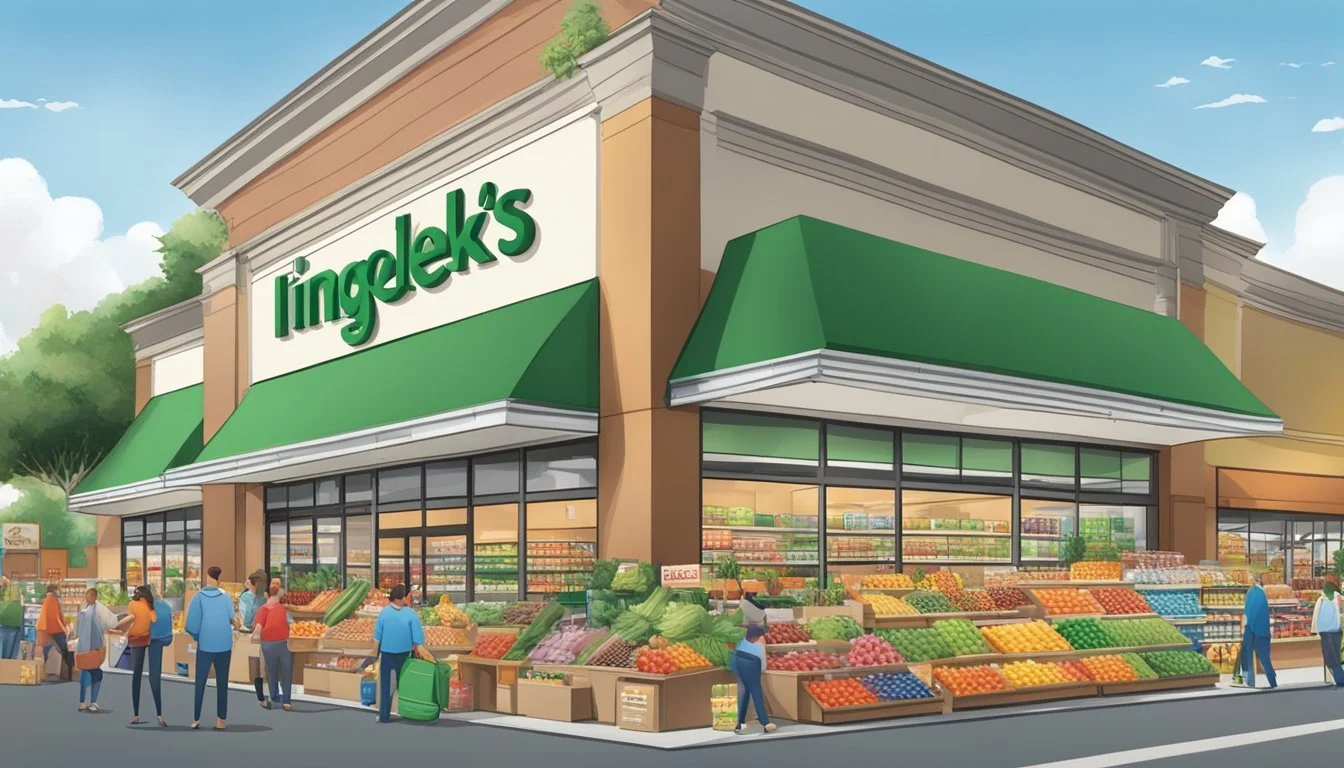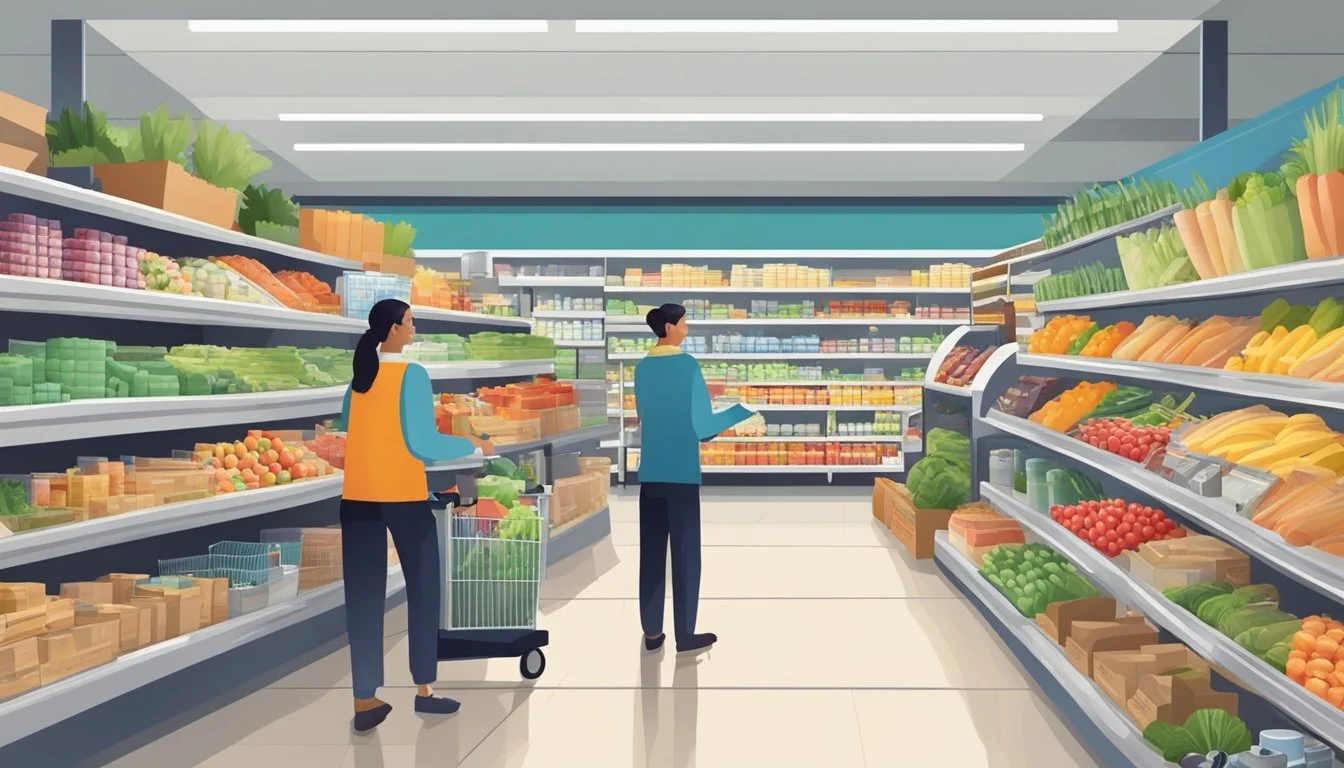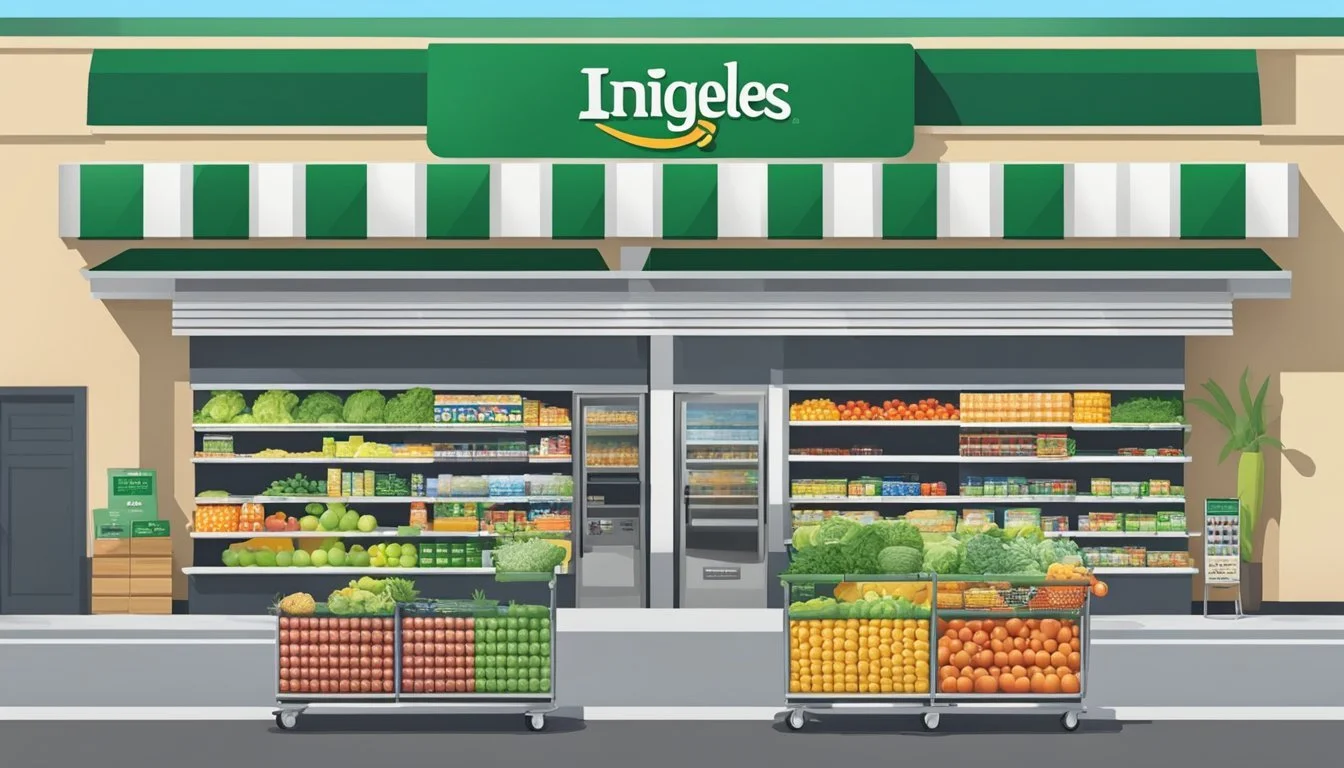Ingles Markets vs Publix
A Comprehensive Comparison of Price, Quality, and Service
Grocery shopping is a regular task for most households, and choosing the right supermarket can significantly impact both budgets and satisfaction. Ingles Markets and Publix are two prominent grocery chains that serve many communities, each with its own strengths and loyal customer base.
While Publix is known for superior customer service and quality products, Ingles Markets often offers lower prices, particularly in dry goods and shelf-stable items. This price difference can be substantial, with Ingles sometimes offering savings of several dollars on comparable baskets of groceries. However, the choice between these two retailers involves more than just price considerations.
Product selection, store atmosphere, and location convenience also play crucial roles in determining which supermarket best meets individual needs. Both chains have their merits, with Publix frequently ranking higher in overall customer satisfaction surveys, while Ingles appeals to budget-conscious shoppers seeking everyday low prices.
Company Backgrounds
Ingles Markets and Publix are two prominent grocery store chains in the southeastern United States. Both have deep roots in their communities and have grown significantly over the decades.
History of Ingles Markets
Ingles Markets was founded in 1963 by Robert Ingle in Asheville, North Carolina. The company began with a single store and expanded rapidly throughout the Appalachian region. By the 1980s, Ingles had over 100 locations.
Ingles went public in 1987, listing on the NASDAQ under the ticker symbol IMKTA. The company focused on serving rural and suburban areas, often becoming a cornerstone of smaller communities.
As of 2021, Ingles operates 198 supermarkets across six southeastern states. The chain is known for its large stores with wide product selections and in-store pharmacies. Ingles also operates its own milk processing plant and distribution center.
History of Publix
Publix was founded in 1930 by George W. Jenkins in Winter Haven, Florida. Jenkins opened the first Publix Food Store during the Great Depression, focusing on customer service and quality products.
The company expanded steadily, introducing innovative features like air conditioning and automatic doors in the 1940s. Publix opened its first supermarket in 1940 and began rapid expansion in the 1950s and 1960s.
Publix remains privately owned, with employees owning a significant portion of the company through an employee stock ownership plan. The chain has over 1,200 stores across seven southeastern states.
Publix is renowned for its customer service, clean stores, and high-quality private label products. The company consistently ranks as one of the top supermarket chains in the U.S. for customer satisfaction.
Store Offerings and Layout
Ingles Markets and Publix both offer a wide range of products and services to meet customers' grocery needs. Their store layouts and product selections aim to provide convenience and quality, though with some notable differences.
Product Range and Quality
Ingles Markets and Publix stock a comprehensive selection of groceries, including fresh produce, meats, dairy, frozen foods, and packaged goods. Publix is known for its high-quality store-brand products, particularly in bakery and deli departments. Their fresh-baked bread and custom-made sandwiches are popular among customers.
Ingles Markets emphasizes competitive pricing on name-brand items and offers a mix of national and regional brands. Their stores often feature larger meat departments with in-house butchers, catering to customers who prefer custom cuts.
Both chains prioritize product freshness, but Publix has gained a reputation for consistently high produce quality. Ingles Markets competes by sourcing from local farmers when possible, particularly in their Appalachian store locations.
Store Cleanliness and Organization
Publix is widely recognized for its exceptionally clean stores and well-organized aisles. Their stores typically feature wide, uncluttered walkways and clearly labeled sections. Staff members are trained to maintain a tidy appearance throughout the day.
Ingles Markets also maintains clean stores, though customer experiences may vary slightly between locations. Their layout tends to be more traditional, with standard grocery aisles and departments arranged in a familiar pattern.
Both chains use clear signage to help customers navigate departments and find products easily. Publix often incorporates more modern design elements in their newer stores, while Ingles Markets maintains a more conventional supermarket aesthetic.
Availability of Organic Foods
Publix and Ingles Markets have both expanded their organic food offerings in recent years to meet growing consumer demand. Publix typically dedicates specific sections to organic and natural products, making them easy to locate. They offer a range of organic produce, meats, dairy products, and packaged goods.
Ingles Markets has also increased its organic selection, often integrating these items alongside conventional products throughout the store. Some larger Ingles locations feature dedicated natural food sections with a broader range of organic and specialty diet items.
Both chains stock organic versions of popular products under their respective store brands, providing more affordable options for health-conscious shoppers. However, Publix generally offers a wider variety of organic choices across all departments.
Pricing and Value for Money
Comparing prices and value between Ingles Markets and Publix reveals key differences in their grocery offerings. Both chains employ distinct pricing strategies and promotional approaches that impact overall shopping costs.
Comparison of Prices Across Common Products
Ingles Markets generally offers lower prices on dry goods compared to Publix. A typical basket of shelf-stable items like cereal, pasta, and condiments costs about $36.81 at Ingles, while the same items at Publix total around $41.62. This represents a savings of $4.81 for shoppers choosing Ingles.
For a broader range of products, the price gap narrows but remains significant. Ingles maintains competitive pricing across most departments, allowing budget-conscious consumers to reduce their grocery bills.
Publix often charges premium prices for similar items, particularly in specialty departments like the bakery or deli.
Deals and Promotions
Publix is known for its frequent sales and "BOGO" (Buy One Get One) offers. These promotions can provide substantial savings on select items each week. Publix also offers digital coupons through its app, enhancing savings opportunities.
Ingles runs regular specials but typically focuses on everyday low prices rather than dramatic discounts. Their MVP rewards program provides additional savings for frequent shoppers.
Both stores issue weekly ad circulars, allowing customers to plan purchases around sale items. Savvy shoppers can maximize savings by timing their visits to coincide with these promotions.
Cost-Effectiveness of Shopping Experience
While Ingles often boasts lower sticker prices, Publix aims to deliver value through superior customer service and store ambiance. Publix stores are typically well-organized and clean, potentially reducing shopping time.
Ingles offers a more no-frills experience, which can translate to quicker trips for shoppers who know what they need. This efficiency may indirectly save money by reducing impulse purchases.
Product quality can affect long-term value. Publix is often praised for its fresh produce and store-brand items, which may last longer or provide better satisfaction despite higher initial costs.
Ultimately, the most cost-effective choice depends on individual shopping habits, preferred products, and the importance placed on the overall shopping experience.
Customer Experience and Services
Ingles Markets and Publix both prioritize customer satisfaction, but their approaches and results differ. Customer feedback and industry rankings provide insights into how these grocery chains perform in key service areas.
Customer Service Rankings
Publix consistently ranks higher in customer service surveys and ratings. The company earned the top spot among grocers in Forbes' inaugural Halo 100 list, coming in at number 4 overall out of 100 companies across industries. This recognition highlights Publix's commitment to exceptional customer care and community involvement.
Ingles Markets, while generally well-regarded, tends to receive lower ratings for customer service. Some customers report difficulties finding managers or customer service representatives in Ingles stores. This can lead to frustration when shoppers need assistance or have concerns to address.
Checkout Efficiency and Convenience
Publix is known for its efficient checkout process. The company trains cashiers to maintain a balance between speed and friendliness. Many stores offer self-checkout options for customers with smaller purchases.
Ingles Markets also provides self-checkout lanes in many locations. However, some customers report longer wait times during peak hours compared to Publix. Both chains typically have baggers available to assist customers, though Publix is often praised for its consistent bagging service.
Additional Services Offered
Publix offers a range of additional services to enhance the shopping experience. These include:
Full-service pharmacies
Custom cake ordering
Catering services
Money services (Western Union, bill pay)
Online ordering with curbside pickup
Ingles Markets provides similar services in many stores, such as:
Pharmacies
Fuel centers at select locations
Floral departments
Online ordering options
Publix tends to receive higher marks for the quality and consistency of its prepared foods and bakery items. The chain's "Pub Subs" have developed a loyal following among customers.
Consumer Reach and Accessibility
Ingles Markets and Publix differ significantly in their geographic presence and accessibility for customers. These factors play a crucial role in shaping the grocery shopping experience for consumers across various regions.
Store Locations and Proximity
Ingles Markets operates primarily in the southeastern United States, with a strong presence in states like North Carolina, South Carolina, Georgia, Tennessee, Alabama, and Virginia. The chain has over 200 stores spread across these regions.
Publix, on the other hand, has a wider footprint. With over 1,200 stores, Publix serves customers in Florida, Georgia, Alabama, South Carolina, North Carolina, Tennessee, and Virginia. The company has a particularly dominant presence in Florida, where it originated.
For many consumers, the choice between Ingles and Publix may simply come down to which store is closer to their home or workplace.
Store Accessibility and Parking
Both Ingles Markets and Publix generally offer ample parking for customers. Ingles stores are often located in suburban or rural areas, providing spacious parking lots to accommodate shoppers.
Publix stores can be found in various settings, from urban centers to suburban neighborhoods. In more densely populated areas, some Publix locations may have parking garages or shared parking facilities.
Both chains typically ensure their stores are accessible to people with disabilities, featuring ramps, wide aisles, and handicap parking spaces near entrances.
Online Shopping and Deliverability
Ingles Markets has embraced digital technology, offering online shopping and delivery services through third-party platforms in many of its markets. Customers can order groceries for pickup or delivery, depending on their location.
Publix has invested heavily in its digital presence. The company offers its own online ordering system, Publix Direct, which allows customers to shop for groceries online and choose between curbside pickup or home delivery options.
Publix's delivery service is available in most of its operating areas, giving it an edge in convenience for many consumers. The company has also partnered with Instacart to expand its delivery reach.
Brand Reputation and Loyalty
Ingles Markets and Publix have established distinct brand identities that shape customer perceptions and loyalty. Their reputations are built on factors like service quality, community involvement, and customer rewards programs.
Customer Loyalty Programs
Publix offers a digital coupon program that allows customers to clip and redeem coupons directly from their smartphones. This system integrates with their weekly ad specials, making it easy for shoppers to save money.
Ingles Markets provides the Ingles Advantage Card. This loyalty program gives customers access to special discounts and fuel savings at Ingles Gas Express locations. Cardholders can earn points on purchases to redeem for grocery discounts.
Both programs aim to incentivize repeat visits and increase customer retention. The effectiveness of these loyalty initiatives plays a role in shaping customer preferences between the two chains.
Public Perception and Brand Trust
Publix has garnered a strong reputation for customer service and quality products. The company consistently ranks high in consumer satisfaction surveys and industry reports. Forbes recognized Publix as a top performer in customer service and charitable giving.
Ingles Markets maintains a more regional presence, primarily in the southeastern United States. While less nationally recognized, Ingles has built a loyal customer base in its operating areas.
Customer reviews and ratings on social media and review sites often highlight Publix's cleanliness and friendly staff. Ingles receives praise for its competitive prices and local product selections.
Engagement with Local Communities
Publix is known for its extensive community involvement. The company supports various local charities, food banks, and educational initiatives. Their "Publix Serves" program organizes volunteer activities for employees to give back to their communities.
Ingles Markets focuses on supporting local farmers and producers. The company emphasizes carrying locally sourced products in its stores, helping to boost regional economies. Ingles also participates in community events and sponsors local sports teams.
Both chains recognize the importance of community engagement in building brand loyalty. Their efforts to contribute to local causes and support regional businesses influence how customers perceive and connect with each brand.
Sustainability and Social Responsibility
Ingles Markets and Publix both pursue sustainability initiatives and social responsibility programs. Their efforts span environmental practices, community engagement, and ethical sourcing.
Environmental Initiatives
Publix has implemented energy-efficient lighting and refrigeration systems in its stores. The company also focuses on reducing food waste through partnerships with local food banks.
Ingles Markets has installed solar panels on some store rooftops to generate clean energy. They've also upgraded their truck fleet to more fuel-efficient models, cutting emissions from distribution.
Both chains offer reusable shopping bags and encourage customers to recycle plastic bags in-store. Publix provides collection bins for recycling various materials beyond just bags.
Community Outreach and Social Impact
Publix is known for its extensive community involvement. The Publix Super Markets Charities organization supports food banks, youth programs, and disaster relief efforts across the Southeast.
Ingles Markets focuses on local community support through its Laura Lynn food brand. A portion of Laura Lynn sales goes to regional food banks and hunger relief programs.
Both companies offer scholarship programs for employees and their families. Publix also provides volunteer opportunities for associates to engage in community service projects.
Ethical Sourcing and Production
Publix works with suppliers to ensure fair labor practices and animal welfare standards. They've expanded their GreenWise organic product line to offer more sustainably sourced options.
Ingles Markets partners with local farmers to source fresh produce, supporting regional agriculture. They've increased their selection of organic and non-GMO products in recent years.
Both chains have taken steps to improve transparency in their supply chains. Publix publishes an annual corporate social responsibility report detailing its sustainability efforts and goals.
Conclusion and Final Assessment
After comparing Ingles Markets and Publix, both grocery chains offer distinct advantages. Ingles tends to have lower prices, especially on dry goods and shelf-stable items.
Publix excels in customer service, with a reputation for superior assistance and attentiveness to shoppers' needs. Their deals can also provide good value for savvy consumers.
Product quality is comparable between the two stores. However, Publix often offers a wider selection of specialty and gourmet items.
For budget-conscious shoppers, Ingles may be the better choice due to its generally lower prices. Those prioritizing customer experience and product variety might prefer Publix.
Ultimately, the best option depends on individual preferences and priorities. Shoppers should consider factors like location, specific product needs, and personal budget constraints when choosing between Ingles Markets and Publix.
Regular price comparisons and taking advantage of sales at both stores can help maximize savings. Trying both retailers allows customers to determine which best meets their unique grocery shopping needs.








